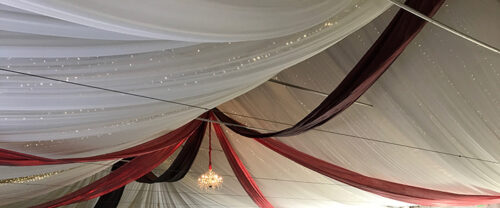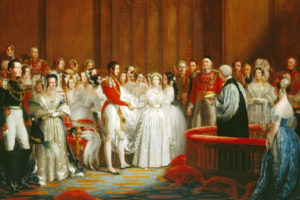
My daughter is getting married next May, and sometimes just the thought of it brings tears to my eyes. So happens spring will also bring publication of my novel—the culmination of years of writing, some publication, lots of rejection, and always, always the tenacity to keep at it, a bag of emotion all its own. Then there’s the sorry state of our country, not to mention the seasonal melancholy etched into every falling autumn leaf.
But this is mostly about weddings and the emotional undercurrent they give rise to. I was weeks from turning thirty-five when I got married, an age at which the thought of being ‘given away’ in a walk down some carpeted aisle didn’t quite cut it. My husband-to-be and I found a venue styled to look like a turn-of-the-century French ballroom. Very hip. Very Greenwich Village. Very us. We did all the legwork, thankful to have very accommodating parents with simple requests. In the mixed metaphor that was, and continues to be, our lives, we were married by an Orthodox rabbi. The wedding may have been larger than I would have liked, but my family was large. I say ‘was’ because the generation that would comprise my parents’ siblings, cousins, friends, etc., is mostly gone. My husband’s parents, whose circle of family and friends was much smaller by comparison, could care less about what would seem to be a proportional imbalance. They were just glad that their son was getting married, and to a nice Jewish girl, who would in two years’ time give them their first granddaughter to dote on.
And dote they did. And on a spring night barely six months from now, that first granddaughter will  find herself under a makeshift Chuppah at a Malibu ranch. We’re counting on her only remaining grandparent to be at the wedding. She’s 91, sharp and healthy, even if a little frail. She lives in northern California, the wedding will be in southern California. My future son-in-law’s grandparents plan to fly in from New York.
find herself under a makeshift Chuppah at a Malibu ranch. We’re counting on her only remaining grandparent to be at the wedding. She’s 91, sharp and healthy, even if a little frail. She lives in northern California, the wedding will be in southern California. My future son-in-law’s grandparents plan to fly in from New York.
Like my wedding, my daughter’s is looking to be larger than she would like, and we’ve all done our best to pare the guest list. This is never an easy task, and one that feels even more emotionally complicated in a time when friends are more like family than the relatives I feel distanced from.
You can’t go home again. But you can feel the ache of what that thing called home, for all the convoluted emotions it encompasses, gives rise to. “You will have only one story,” says Sarah Payne, the fictitious writer/mentor to Lucy Barton in Elizabeth Strout’s tender and touching novel, My Name Is Lucy Barton. “You’ll write your one story many ways.” I don’t know that I have only one story, but I do know that the complexity of mother-daughter relationships keeps surfacing (hopefully in different ways) in my fiction and essays. Then there’s the more general exploration of familial ties: what happens when that thing we think of as family disperses almost to the point of dissolving?
I tear up during the ceremony at any wedding I attend. Down-the-aisle love songs have a way of tugging at my heart, hitting that nerve that sits on the edge of love and loss in the way that weddings do.
For better or for worse, a wedding is an affirmation of love. It reminds us what it is to be young (or old) and truly in love.
It’s another link in a chain of rituals that bind us.
It’s a reminder that the circle of life is held together by new links forged from broken ones.
It tells us that our children are grown now, moving on.
All those months, the planning and attention to details—the venue, the food, the entertainment, the guest list, the dress (a tradition with a history all its own)—
—to be funneled into a celebration, one day only, that embodies the future and the past.
Suddenly it’s here. We lift our glasses to the bride and groom. We smile. We laugh. We cry. We dance.


